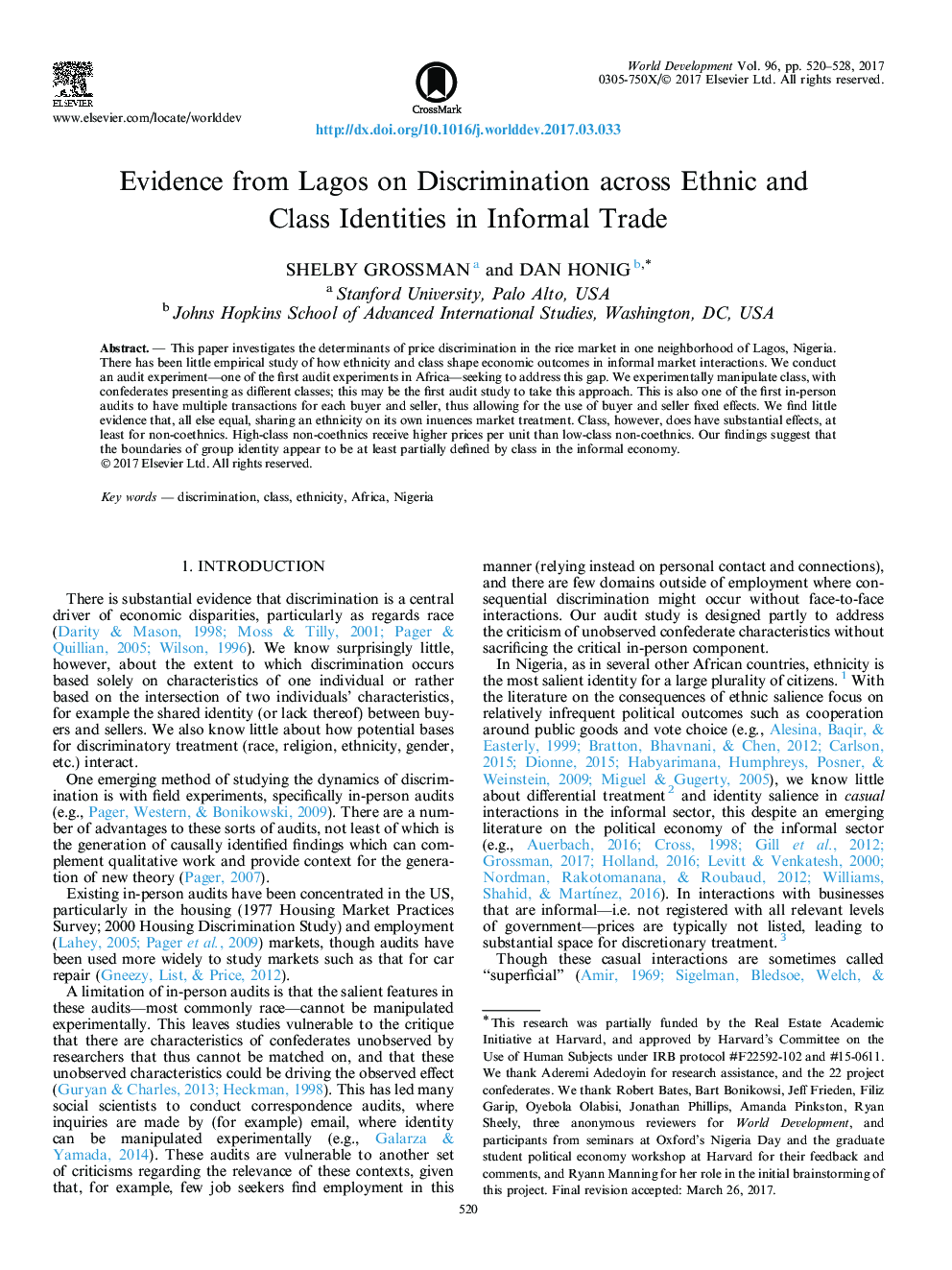| Article ID | Journal | Published Year | Pages | File Type |
|---|---|---|---|---|
| 5105077 | World Development | 2017 | 9 Pages |
Abstract
This paper investigates the determinants of price discrimination in the rice market in one neighborhood of Lagos, Nigeria. There has been little empirical study of how ethnicity and class shape economic outcomes in informal market interactions. We conduct an audit experiment-one of the first audit experiments in Africa-seeking to address this gap. We experimentally manipulate class, with confederates presenting as different classes; this may be the first audit study to take this approach. This is also one of the first in-person audits to have multiple transactions for each buyer and seller, thus allowing for the use of buyer and seller fixed effects. We find little evidence that, all else equal, sharing an ethnicity on its own influences market treatment. Class, however, does have substantial effects, at least for non-coethnics. High-class non-coethnics receive higher prices per unit than low-class non-coethnics. Our findings suggest that the boundaries of group identity appear to be at least partially defined by class in the informal economy.
Related Topics
Social Sciences and Humanities
Economics, Econometrics and Finance
Economics and Econometrics
Authors
Shelby Grossman, Dan Honig,
